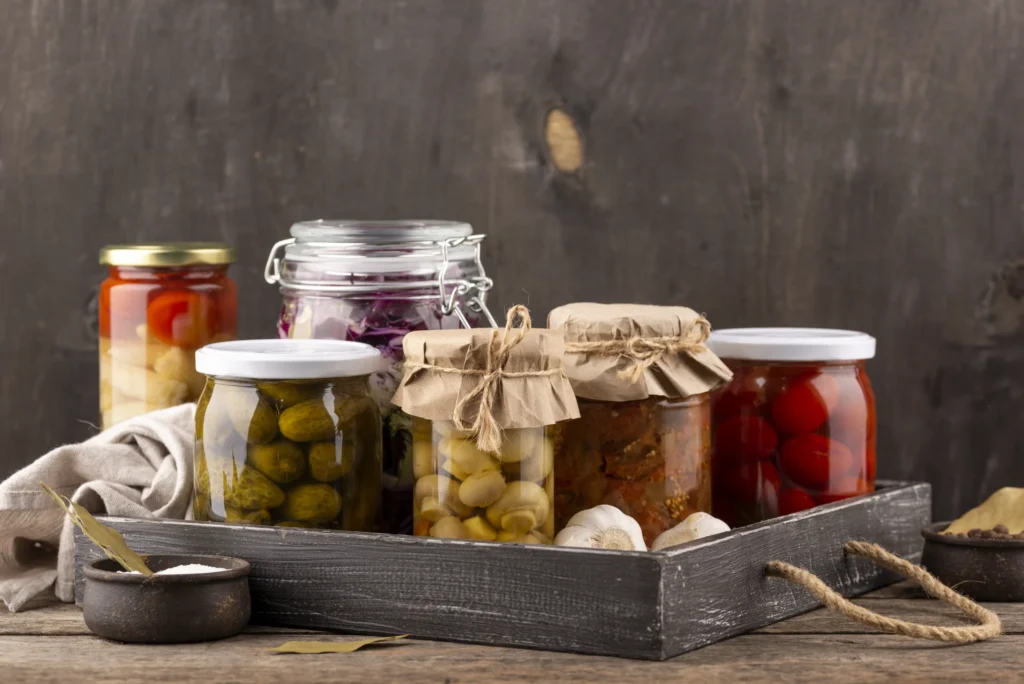Read time : 8.5 minutes

What Does “Processed” Mean in Food?
Food processing refers to any deliberate change in a food item before it’s available for consumption. This includes simple actions like washing, cutting, drying, fermenting, freezing, or pasteurizing foods. But processing can also involve adding salt, sugar, fats, or artificial ingredients to improve taste, extend shelf life, or change the food’s texture.
Types of Food Processing: From Minimal to Ultra-Processed
Minimally Processed Foods
These foods are slightly altered to enhance convenience and safety without changing their fundamental nature. Examples include washed spinach, frozen berries, roasted nuts, and pasteurized milk. They retain most of their original nutritional value.
Processed Culinary Ingredients
These are substances extracted from foods to use in cooking, like oils, butter, sugar, or salt. While essential for preparing meals, they aren’t usually consumed alone.
Processed Foods
These are foods created by combining minimally processed foods with culinary ingredients. Think canned beans, simple cheeses, or freshly baked bread made with just flour, water, and salt.
Ultra-Processed Foods (UPFs)
UPFs are industrial creations loaded with artificial colors, flavors, emulsifiers, and preservatives. Soda, instant noodles, packaged snacks, and most frozen ready-to-eat meals fall into this category. They are tasty and convenient but often lacking in essential nutrients.
Why Are Ultra-Processed Foods a Growing Concern?
Health Risks Linked to UPFs
Many studies have raised red flags about UPFs. A 2020 study published in The BMJ revealed that eating more than four servings of UPFs daily raised heart disease risk by 62% and premature death risk by 26%. Other research links UPF consumption to obesity, diabetes, and mental health issues like depression.
How UPFs Replace Whole Foods
UPFs often crowd out healthier options like fruits, vegetables, lean proteins, and whole grains. This displacement leads to nutrient deficiencies, particularly in fiber, vitamins, and minerals essential for long-term health.
How Ultra-Processed Foods Undermine Your Wellness

Excessive Additives and Hidden Dangers
UPFs are loaded with unhealthy ingredients—added sugars, trans fats, sodium—that promote inflammation and chronic diseases.
Low Nutritional Value and Deficiency Risks
Processing often strips foods of their natural fibers and nutrients, replacing them with empty calories that offer little to no real nourishment.
Engineered to Trigger Overeating
UPFs are scientifically designed to be hyper-palatable, making it easy to overeat and challenging to stick to healthy portions.
The NOVA Classification System Explained
Food scientists developed the NOVA system to classify foods based on their level of processing. It ranges from minimally processed foods to ultra-processed industrial formulations. Health organizations worldwide, including the World Health Organization, now use NOVA to guide healthy eating recommendations.
Ghana’s Food-Based Dietary Guidelines on Processed Foods
Advice to Limit Ultra-Processed Food Intake
Ghana’s 2023 FBDGs highlight the need to reduce UPF consumption to curb the rise of non-communicable diseases.
Emphasis on Traditional, Minimally Processed Foods
The guidelines encourage the consumption of traditional foods like millet, sorghum, beans, waakye, and kontomire stew, promoting cultural identity and better health.
Importance of Reading Food Labels
Consumers are urged to carefully check labels for harmful additives like monosodium glutamate (MSG) and high-fructose corn syrup.
Can Some Processed Foods Be Beneficial?

Examples of Healthy Processed Foods
- Iodized Salt: Prevents iodine deficiency.
- Fortified Cereals: Combat anemia.
- Canned Fish: Provide affordable protein and omega-3s.
- Frozen Vegetables: Often fresher and more nutrient-dense than produce sitting for days in markets.
Smart Choices: What to Look For
Choose processed foods with simple ingredient lists like “tomatoes, water, salt” and avoid those filled with artificial additives and chemicals.
RD, LD Julius Sammah
MyHealthCop Certified Dietician
Ready to Take the First Step?
👉 Book a 1-on-1 Session with any of our Certified Dietitian professionals to start your health journey today. [DOWNLOAD THE APP]